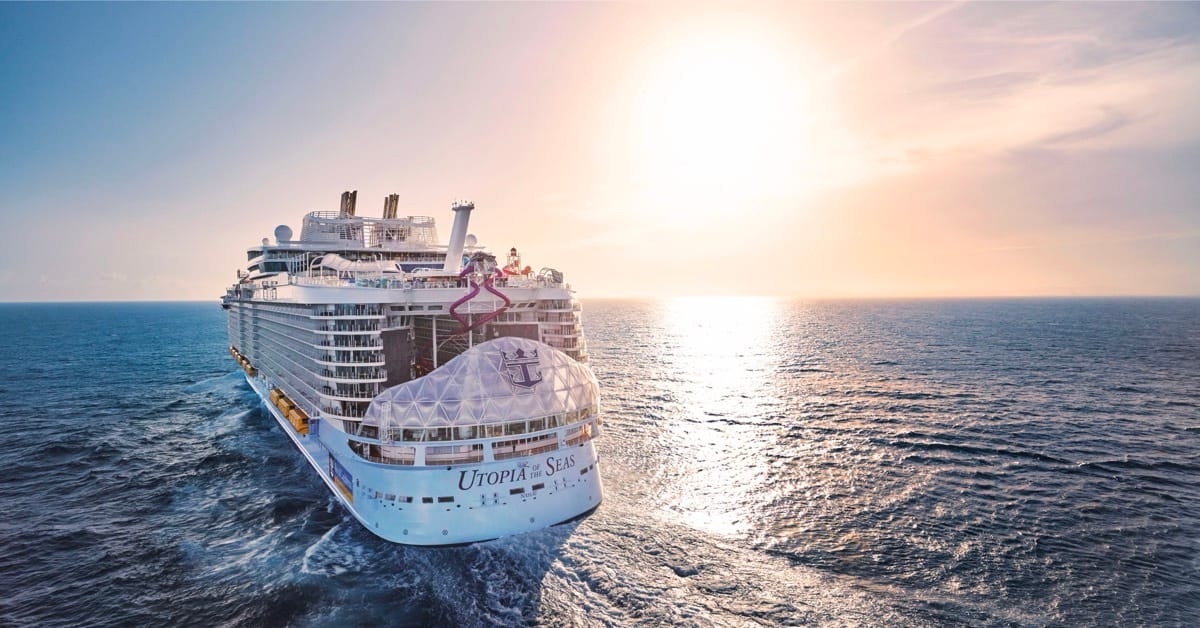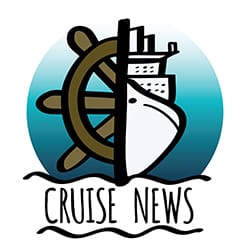Royal Caribbean shifts to short sailings for new cruisers

Royal Caribbean has been a leader in the cruise industry for quite some time, and it continues to adapt to changing consumer preferences in significant ways. A notable shift recently occurred with the introduction of their latest ship, Utopia of the Seas, which has broken from the tradition of offering primarily week-long cruises. This adjustment is reflective of the evolving definitions of what a cruise experience can entail, particularly within the family market.
The Evolution of Cruise Ships
Gone are the days when the primary question regarding a cruise was, "Where are you going?" The focus has shifted from merely reaching a destination to experiencing the ship itself. Royal Caribbean's Oasis-class series, which debuted in 2008, significantly changed this narrative by introducing ships with unique neighborhoods, such as Central Park and The Boardwalk.
This evolution sparked an arms race in the cruise industry, pushing competitors like Carnival and MSC Cruises to enhance their ships' offerings dramatically. Carnival's latest Excel-class ships include eye-catching features like onboard roller coasters, and MSC Cruises' entry into the mega-ship category broadens their appeal to potential passengers.
Royal Caribbean's New Strategy
Traditionally, large cruise ships have been designed with week-long itineraries in mind. Such cruises maximize revenue by catering to families, who often have limited vacation time. However, Royal Caribbean recently decided to abandon this model with Utopia of the Seas, steering toward shorter 3-4 day sailings out of Port Canaveral.
This departure from the norm is strategic. According to Michael Bayley, CEO of Royal Caribbean International, the shorter sailings serve as an effective entry point for new cruisers. Understanding that many prospective customers may find a brief getaway more appealing, Royal Caribbean aims to attract first-time cruisers with this ship.
Perfect Day at CocoCay
One of the significant features of Utopia's shorter itineraries is its consistent stop at Perfect Day at CocoCay, a private island in the Bahamas that has undergone extensive renovations. By routing all sailings through this heavily revamped port of call, Royal Caribbean is boosting its appeal to newcomers while providing desirable and unique experiences.
While this approach may seem like a short-term sacrifice in revenue—since per-night prices for Utopia may be lower than for ships like Icon of the Seas—Royal Caribbean is investing in building a loyal customer base. This strategy accommodates new passengers, many of whom are more likely to feel comfortable committing to a short cruise than a week-long journey.
Catering to New Cruisers
Royal Caribbean's renewed interest in short cruises is, in part, a response to the increasing need for new clientele in the cruising market. Both Carnival and MSC Cruises have also expanded their capacities, which intensifies the competition for attracting new customers.
By recognizing that short cruises are easier purchases for “new-to-cruise” travelers, Royal Caribbean is capitalizing on a growing demographic. As Bayley noted, these shorter shifts lower the barrier of entry for potential customers by requiring less time and financial commitment.
The Competition Landscape
While Bayley did not explicitly mention major competing attractions like Disney World or Universal Studios, it is clear that Royal Caribbean is positioning Utopia of the Seas as an attractive alternative. As families flock to Orlando's theme parks, this new shorter cruise format combines the cruise experience with convenience for domestic travelers accessible by car.
The decision to have Utopia sail from Port Canaveral reflects a strategic attempt to tap into Florida's significant tourist market. Many families planning trips to theme parks can easily incorporate a cruise into their travel itinerary, seamlessly blending both experiences.
Market Response to Utopia of the Seas
So far, the financial markets have reacted positively to Royal Caribbean's strategic shift. Shares of the company have risen significantly since mid-2022, a testament to the effectiveness of this new approach. The success of Icon of the Seas, which has sold out consistently, further illustrates that the ultra-premium cruise category has its audience.
Bayley noted that Utopia of the Seas has already received high satisfaction ratings from passengers, with onboard revenues exceeding expectations. This trend indicates a promising future for Royal Caribbean, suggesting that the strategic pivot toward shorter cruises is indeed paying off.
The Future of Cruising
The cruise industry is evolving, and Royal Caribbean is at the forefront of that change. With consumer preferences shifting, the company could continue to explore new strategies while focusing on innovation and enhancing the cruise experience.
As the cruise market becomes progressively competitive, Royal Caribbean's emphasis on attracting new cruisers through shorter sailings may provide it with a distinctive edge. Moreover, leveraging its state-of-the-art amenities and customer service will likely be critical in maintaining this momentum.
Conclusion
Royal Caribbean's decision to redefine its offerings with Utopia of the Seas is indicative of broader trends within the cruise industry. By prioritizing shorter sailings and embedding exceptional port experiences, the cruise line is setting a precedent for what modern cruising can look like. As the competition grows, Royal Caribbean’s adaptability will be essential in capturing the interests of both first-time and repeat cruisers in the market.
FAQs
1. What is the significance of Royal Caribbean's Utopia of the Seas?
Utopia of the Seas represents a shift in Royal Caribbean’s strategy, moving towards shorter cruise itineraries to attract new customers.
2. Why is Royal Caribbean moving away from week-long cruises?
The decision is based on research suggesting that shorter cruises are more appealing, especially for first-time cruisers, reducing the commitment required from customers.
3. What is Perfect Day at CocoCay?
Perfect Day at CocoCay is a private island in the Bahamas owned by Royal Caribbean, featuring a range of attractions and amenities for passengers during their cruise stop.
4. How has the cruise industry changed in recent years?
The cruise industry has seen a trend towards larger ships with more amenities, and a shift in focus from destinations to onboard experiences.
5. What is Royal Caribbean’s approach to attracting new customers?
Royal Caribbean aims to attract new customers by offering short cruises that are easier to book and enjoy, while also promoting enjoyable experiences at revamped ports like CocoCay.




